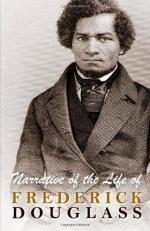Again, we have known you long, and can put the most entire confidence in your truth, candor, and sincerity. Every one who has heard you speak has felt, and, I am confident, every one who reads your book will feel, persuaded that you give them a fair specimen of the whole truth. No one-sided portrait,—no wholesale complaints,—but strict justice done, whenever individual kindliness has neutralized, for a moment, the deadly system with which it was strangely allied. You have been with us, too, some years, and can fairly compare the twilight of rights, which your race enjoy at the North, with that “noon of night” under which they labor south of Mason and Dixon’s line. Tell us whether, after all, the half-free colored man of Massachusetts is worse off than the pampered slave of the rice swamps!
In reading your life, no one can say that we have unfairly picked out some rare specimens of cruelty. We know that the bitter drops, which even you have drained from the cup, are no incidental aggravations, no individual ills, but such as must mingle always and necessarily in the lot of every slave. They are the essential ingredients, not the occasional results, of the system.
After all, I shall read your book with trembling for you. Some years ago, when you were beginning to tell me your real name and birthplace, you may remember I stopped you, and preferred to remain ignorant of all. With the exception of a vague description, so I continued, till the other day, when you read me your memoirs. I hardly knew, at the time, whether to thank you or not for the sight of them, when I reflected that it was still dangerous, in Massachusetts, for honest men to tell their names! They say the fathers, in 1776, signed the Declaration of Independence with the halter about their necks. You, too, publish your declaration of freedom with danger compassing you around. In all the broad lands which the Constitution of the United States overshadows, there is no single spot,—however narrow or desolate,—where a fugitive slave can plant himself and say, “I am safe.” The whole armory of Northern Law has no shield for you. I am free to say that, in your place, I should throw the Ms. into the fire.
You, perhaps, may tell your story in safety, endeared as you are to so many warm hearts by rare gifts, and a still rarer devotion of them to the service of others. But it will be owing only to your labors, and the fearless efforts of those who, trampling the laws and Constitution of the country under their feet, are determined that they will “hide the outcast,” and that their hearths shall be, spite of the law, an asylum for the oppressed, if, some time or other, the humblest may stand in our streets, and bear witness in safety against the cruelties of which he has been the victim.




